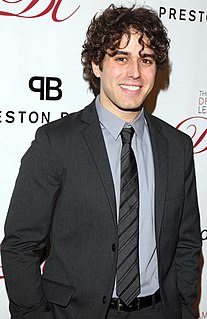Цитата Джерни Смоллетт-Белл
Мне говорят, что я статистика. Мне сказали, что мои юные черные сестры больны... но мы лучше, чем то, о чем нам говорит общество.
Темы цитат
Связанные цитаты
Наврали обо всем, и о заборе, и о существовании инвалидов, и о миллионах других вещей. Нам сказали, что рейды проводились для нашей же защиты. Они сказали нам, что регулирующие органы заинтересованы только в поддержании мира. Нам говорили, что любовь — это болезнь. Нам сказали, что в конце концов это убьет нас. Впервые я понимаю, что это тоже может быть ложью.
Взрослые, которые любили и знали меня, много раз садили меня и говорили, что я черный. Как вы могли себе представить, это оказало на меня глубокое влияние и вскоре стало моей правдой. Все мои друзья были черными; мои подруги были черными. Меня считали черным, обращались с ним как с черным, и я подвергался постоянному открытому расизму, когда был черным подростком.
Паб Town Hall в среду вечером был просто завсегдатаем, так что мы могли играть во что угодно. В худшем случае это будут те же семь человек, которые всегда были в баре и напивались, и они были бы там для нас. Но мы просто рассказали нашим друзьям и семье, и они пришли нас поддержать. Затем они рассказали своим друзьям, которые рассказали своим друзьям, которые рассказали своим друзьям. Это было полноценное мероприятие.
... они сказали мне о цвете, что это иллюзия глаза, событие в уме воспринимающего, а не в объекте; они сказали мне, что у цвета нет реальности; действительно, они сказали мне, что цвет не присущ физическому телу больше, чем боль не присуща игле. И тогда они заключили меня во тьму; и хотя там не было цвета, я все равно был черным, а они все еще были белыми; и за это они связали меня и заткнули рот.
В обществе нам часто говорят принимать решения одним из двух способов. Нам либо говорят: «Используй свою интуицию, просто следуй тому, что ты чувствуешь по этому поводу, и пусть это ведет тебя», либо нам говорят использовать разум — какой-то очень совещательный методический процесс взвешивания «за» и «против» и действительного обдумывания.
Я думаю, что американцы устали от того, что им говорят. Они устали от того, что им говорят, что это настолько хорошо, насколько это возможно. Они устали от того, что им твердят, как говорил Рональд Рейган, что небольшая интеллектуальная элита в далекой столице может планировать нашу жизнь лучше, чем мы сами.
Когда я хочу объяснить, почему расширение прав и возможностей девочек и женщин имеет решающее значение для борьбы с бедностью, я часто рассказываю историю одного человека. Легче относиться к личной истории, чем к глобальным данным, говорящим нам о том, что большинство из миллиарда людей, живущих менее чем на 2 доллара в день, составляют женщины и девочки. Нам часто говорят никогда не относиться к человеку как к статистике.



































